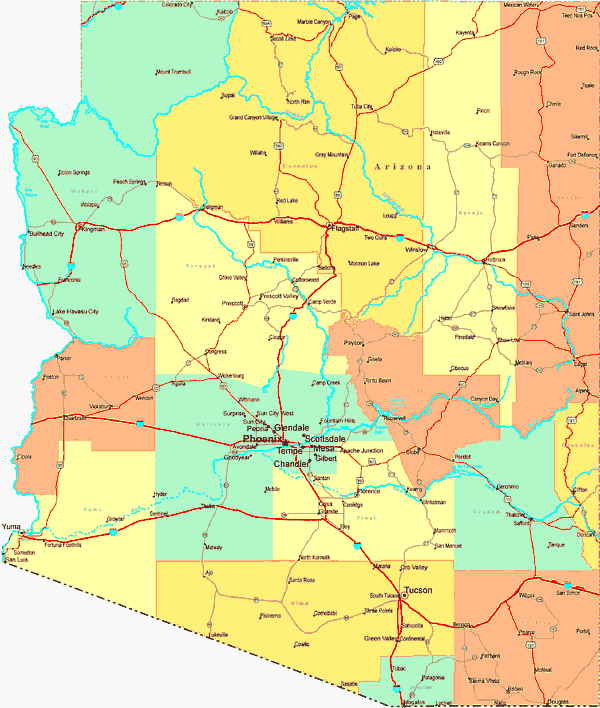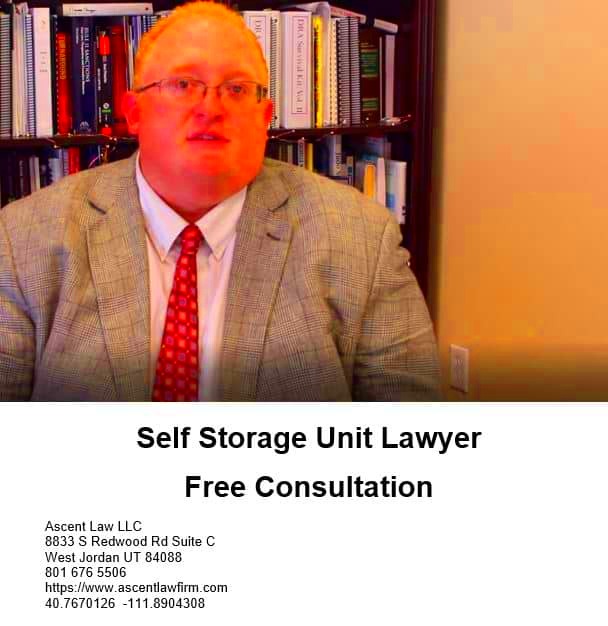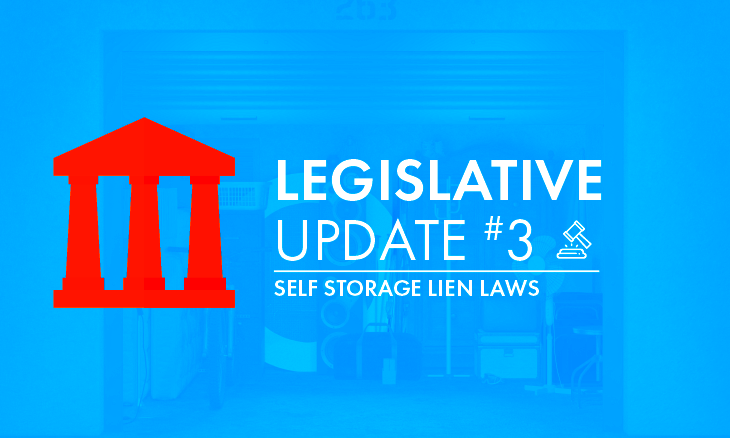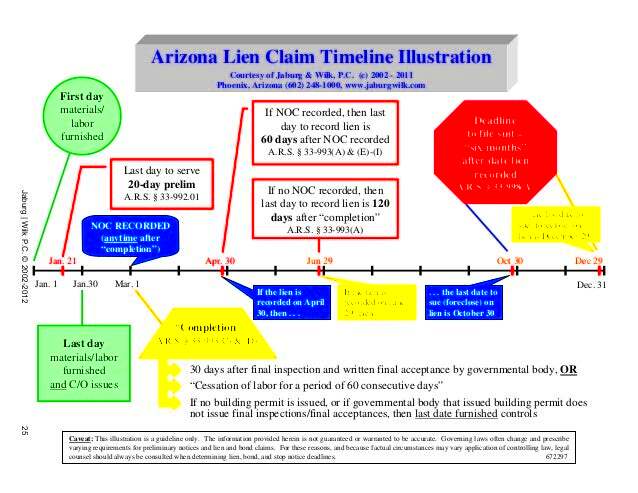Arizona’s Self-Storage Lien Laws and Their Impact
Self storage facilities offer a convenient solution for safeguarding personal items but what occurs when an individual neglects to fulfill their payment obligations? In Arizona self storage lien regulations come into effect. These statutes outline the process through which storage facility operators can take possession of stored belongings if payment responsibilities are not upheld. Having witnessed the effects of these laws on both storage facility owners and tenants I recognize the challenges involved in navigating them. However I believe that understanding these regulations is essential, for efficiently managing storage unit operations.
Understanding Self-Storage Liens

When tenants don’t pay their rent storage facility owners can put a legal claim called a lien on their belongings. This allows the owner to sell or get rid of the stored items to recover the unpaid rent. Let’s take a look at how these liens operate.
- What is a Lien? A lien is essentially a legal claim against property until a debt is settled. In the case of self-storage, it allows the storage facility to take action if payments are missed.
- Purpose of a Self-Storage Lien: The primary aim is to protect the facility’s financial interests and ensure that tenants adhere to their payment obligations.
- Legal Requirements: There are specific legal requirements that must be followed, including notifying the tenant of the lien and providing a grace period for payment before taking further action.
Based on what I have seen grasping these fundamentals can really help reduce stress and avoid legal issues. Its important for both property owners and renters to know their rights and obligations according to these regulations.
How Self-Storage Liens Work in Arizona

In Arizona the procedure for enforcing a self storage lien is outlined and involves a series of steps.
- Default Notice: When a tenant fails to pay their rent, the storage facility must send a notice of default. This notice informs the tenant of the overdue payment and the potential consequences of continued non-payment.
- Grace Period: Arizona law requires a specific grace period before further action can be taken. This period allows tenants time to settle their debts and avoid losing their stored items.
- Public Sale: If the tenant still does not pay after the grace period, the facility can proceed with a public auction of the items. This sale is typically advertised to ensure it is open and fair.
- Proceeds from Sale: The money raised from the sale goes toward covering the unpaid rent and any other associated costs. If there’s any surplus, it is returned to the tenant.
In my experience in this industry I have witnessed the significance of storage owners and tenants being aware of the procedures. Effective communication and compliance with regulations can help avoid misunderstandings and make the process smoother for all parties involved.
Key Changes in Recent Legislation

The selfstorage lien laws in Arizona have changed over time to adapt to the shifting landscape of storage and rental conflicts. These revisions seek to strike a balance between the concerns of storage facility operators and tenants while promoting fairness in dealings. Based on my observations grasping these updates is essential, for staying on the side of the law and steering clear of potential legal issues.
- Enhanced Notification Requirements: Recent legislation has introduced stricter rules for notifying tenants about their default status and impending lien. This change ensures tenants have a clearer understanding of their obligations and the consequences of non-payment.
- Extended Grace Periods: There is now a longer grace period before a facility can proceed with a lien. This adjustment offers tenants additional time to address their payments and reduces the likelihood of hasty actions by storage owners.
- Detailed Auction Procedures: The new laws mandate more transparency in the auction process. Facilities must now follow specific guidelines for advertising auctions and handling proceeds, ensuring that the process is fair and open to all potential buyers.
- Increased Tenant Protections: Recent updates have introduced more robust protections for tenants, including clearer rules about how surplus funds from sales are handled and the requirement for detailed documentation throughout the lien process.
Having seen these changes in the law up close I can say that they aim to safeguard everyone involved. Keeping up with these developments can greatly impact the efficiency of a storage lien procedure.
Impact on Storage Facility Owners
The recent changes in Arizonas selfstorage lien laws present challenges and opportunities for storage facility owners. I believe these impacts are notable and can influence day to day operations and broader management approaches.
- Increased Administrative Burden: With more detailed notification and auction requirements, facility owners now face additional paperwork and procedural steps. While this can be time-consuming, it helps ensure compliance and fairness.
- Higher Costs for Auctions: The new regulations require more thorough advertising and handling of auctions, potentially increasing costs. However, these steps also aim to attract more bidders and potentially higher returns on unpaid items.
- Improved Relations with Tenants: By adhering to the updated laws, facility owners can build better relationships with tenants. Clear communication and fair practices can enhance trust and reduce disputes.
- Enhanced Legal Protection: Compliance with the new laws can safeguard facility owners against legal challenges. Proper documentation and adherence to procedures reduce the risk of disputes and legal repercussions.
Based on what I have seen it can take a while to adjust to these changes. However in the end they contribute to fostering a fairer and more open setting for both property owners and renters.
Impact on Tenants and Their Rights
The recent changes to Arizonas self storage lien laws have brought both benefits and challenges for renters. These updates show an increasing focus on tenant rights and fair treatment which aligns with what I have noticed in this area.
- More Time to Resolve Payments: Tenants now benefit from extended grace periods, providing additional time to catch up on payments before facing a lien or auction. This change offers a fair chance to avoid losing their stored possessions.
- Clearer Notifications: Enhanced notification requirements mean tenants receive more detailed and timely information about their payment status and potential lien actions. This transparency helps tenants stay informed and take action promptly.
- Stronger Protections for Personal Property: New laws include provisions to better protect tenants’ belongings during the auction process. This includes clearer rules about handling surplus funds and ensuring that sales are conducted fairly.
- Increased Access to Legal Recourse: With the changes, tenants have more avenues to contest unfair practices. Knowing their rights and having access to clearer legal procedures helps tenants address issues more effectively.
I believe that these adjustments show an increasing awareness of the importance of fairness and transparency in tenant interactions. When tenants are informed about their rights they can maneuver through the system with more assurance and safeguard their interests more effectively.
Common Legal Issues and Disputes
Dealing with self storage lien laws in Arizona can be tricky, especially when it comes to legal matters and disputes. Based on my experiences in this industry I’ve encountered a range of issues that often come up each needing to be addressed with caution to prevent them from turning into more serious conflicts.
- Improper Notification: One of the frequent issues is improper or insufficient notification to tenants about their default status. This can lead to disputes over whether the tenant was given a fair chance to pay their overdue rent. Ensuring that all notifications are sent in accordance with the law is crucial.
- Disputes Over Auction Procedures: Disagreements can occur over how auctions are conducted. Tenants may challenge the fairness of the auction or the handling of their belongings. Adhering strictly to legal requirements for advertising and conducting auctions helps mitigate these disputes.
- Handling of Surplus Funds: After an auction, any surplus funds must be returned to the tenant. Disputes can arise if tenants feel that surplus funds are not handled correctly or transparently. Keeping detailed records and clear documentation can help resolve these issues.
- Claims of Harassment: Tenants might accuse facility owners of harassment or unfair treatment, especially if they believe the lien process was mishandled. Ensuring respectful communication and following legal protocols helps prevent such claims.
In my view staying ahead of the game and well informed about these problems can help tenants and property owners avoid drawn out and expensive conflicts. Having procedures in place and communicating openly is crucial to prevent any misinterpretations or legal issues.
Steps to Ensure Compliance with Arizona Laws
To comply with Arizonas self storage lien laws it is crucial to pay close attention to the specifics and follow the legal guidelines. Drawing from my experience here are some actionable steps that can assist storage facility owners and tenants in effectively navigating these regulations.
- Familiarize Yourself with the Law: Both facility owners and tenants should thoroughly understand the self-storage lien laws in Arizona. Regularly reviewing the relevant statutes and legal updates helps in staying compliant.
- Maintain Clear Records: Keep detailed records of all communications, payments, and notices related to the self-storage lien process. Proper documentation is vital for proving compliance and resolving disputes.
- Provide Timely Notifications: Ensure that all required notifications are sent promptly and in the correct manner. This includes default notices, auction notices, and any other communication required by law.
- Follow Auction Procedures: Adhere to the legal requirements for conducting auctions. This includes proper advertising, transparent handling of items, and accurate accounting of sale proceeds.
- Respect Tenant Rights: Be mindful of tenant rights throughout the lien process. Provide opportunities for tenants to resolve their payments and handle their belongings with care and respect.
Based on what I have seen taking these measures not only prevents potential legal problems but also cultivates a more open and trusting rapport between property owners and their renters.
FAQs About Self-Storage Lien Laws in Arizona
Grasping the intricacies of self storage lien regulations can be challenging but having clarity on queries can greatly impact the situation. Drawing from my encounters here are a few commonly posed questions that tend to arise.
- What happens if I miss a payment? If you miss a payment, the storage facility will typically send a default notice. If the payment is not made within the grace period, the facility may proceed with a lien and auction your belongings.
- How will I be notified of a lien? You will receive a written notice from the storage facility informing you of the lien and the auction. This notice must be sent in accordance with Arizona law, and you should keep a copy for your records.
- Can I contest a lien? Yes, you can contest a lien if you believe the facility did not follow legal procedures. It’s important to address any issues promptly and seek legal advice if necessary.
- What should I do if my belongings are auctioned? If your belongings are auctioned, the proceeds from the sale will be used to cover unpaid rent and associated costs. Any surplus funds should be returned to you. Ensure you keep detailed records of all transactions and communications.
- How can facility owners avoid legal issues? Facility owners can avoid legal issues by following all required procedures, maintaining accurate records, and ensuring clear communication with tenants. Being proactive and informed helps in managing the lien process effectively.
These frequently asked questions tackle a few of the worries and can assist tenants and facility operators in maneuvering through the intricacies of self storage lien regulations more assuredly.
Conclusion on Arizona’s Self-Storage Lien Laws
In conclusion our conversation about the self storage lien laws in Arizona it is evident that these rules are essential for maintaining a balance between storage facility owners and their tenants. Based on my experience having a thorough understanding of these regulations can greatly impact the smooth management of storage units. The recent changes in the law show an increasing dedication to fairness, transparency and consideration for all parties involved. For storage facility owners staying updated and compliant not only helps avoid legal issues but also nurtures relationships with tenants. For tenants being aware of your rights and the procedures can assist in preventing conflicts and safeguarding your belongings. Adopting these practices ensures that the self storage system operates as intended creating a secure and fair environment for everyone. Therefore whether you’re overseeing a storage facility or renting a unit staying informed about these laws is vital for a harmonious experience.


